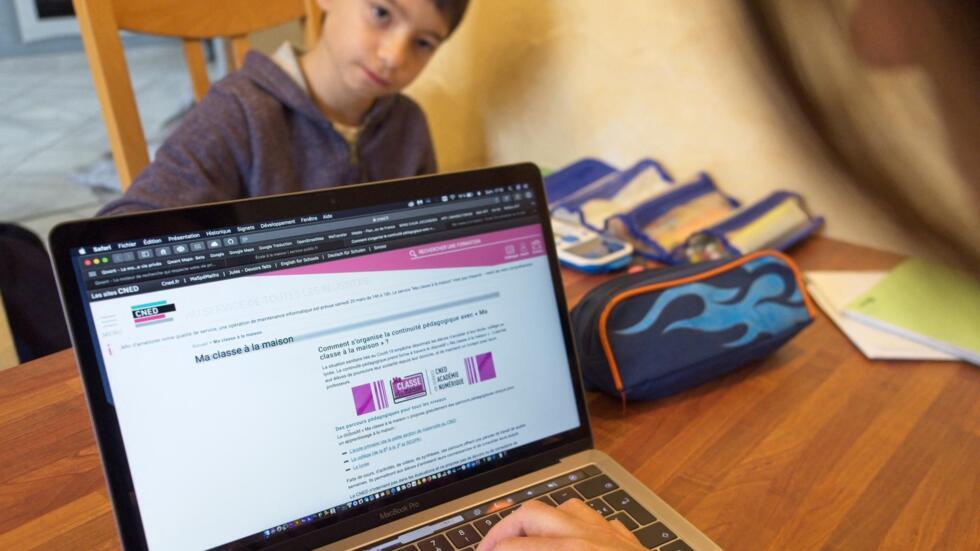French homeschooling platform hit by hackers from Russia, China
Hackers operating from Russia and China targeted France's homeschooling platform which crashed at the start of a nationwide lockdown last week, investigators said Monday.
Issued on:

The cyber attacks on the "Ma classe a la maison" (My class at home) programme originated in Russia and China but it was unclear whether the perpetrators were themselves Russian and Chinese, the sources added.
The platform, which was used by more than a million pupils and teachers to continue classes after schools were shut to halt the spread of Covid-19, repeatedly crashed on 6 April.
France's distance learning centre CNED, which runs the service, complained of "deliberate malevolent acts" taking place over several days.
Tous les sites du CNED et les plateformes #MaclasseALaMaison sont de nouveau les cibles de cyberattaques depuis cette nuit. Toutes nos équipes sont pleinement mobilisées pour rétablir un service optimal au plus vite.
— CNED (@cned) April 8, 2021
Education Minister Jean-Michel Blanquer drew widespread ridicule for suggesting that foreign hackers caused the disruptions, with many parents instead blaming a lack of preparation by the government.
But investigators confirmed that hackers had targeted the system.
President Emmanuel Macron shut the country's schools for three weeks to help curb a third wave of Covid-19 infections, after hospitals warned they were being swamped with critical cases.
After one week of homeschooling, schools were closed for two weeks' holidays.
Distance learning is not the only sector to have been targeted by cyber attacks in recent months. Several French hospitals have also had systems shut down by hackers.
The European police agency said that cybercrime was increasing as health restrictions in many countries mean people have to live and work more online without adequate online protection.
Online fraud has become a major problem including investment fraud and malware phishing attacks as well as the online sexual exploitation of minors, the Europol agency said Monday in its four-yearly report.
(with wires)
Daily newsletterReceive essential international news every morning
Subscribe